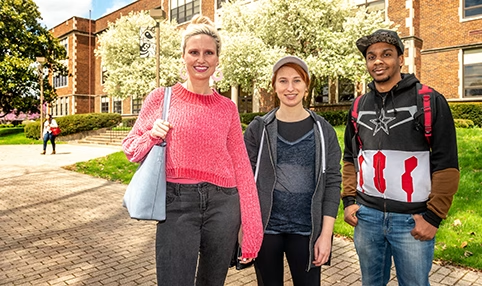The MS in Sport Studies program will develop the professional knowledge skills and dispositions of Sport Studies candidates so that they may demonstrate the following programmatic objectives based on the NASPE National Standards for Athletic Coaches:
1. Demonstrate coaches as a role model to athletes of all ages and diversities through study and practice of Sport Philosophy, law, ethics, teaching and proper writing and accurate oral communication skills.
2. Demonstrate knowledge of human growth and development from birth – death, kinesthetic learning theories and tactics and current coaching and training trends by planning physiologically and biomechanically correct practice and conditioning sessions that allow for proper progression of skill and that are safe and minimize the risk of injury.
3. Demonstrate knowledge and skill for understanding diverse athletic population and accommodating different learning styles and physical skill by planning, coaching and evaluating athletic performance and progression that include modifications that address these issues.
4. Exhibit knowledge of and abilities to create responsible and effective communities of sport learning and understanding by developing leadership and management frameworks that include criteria with specific attention to respect for other athletes, respect for the sport game, appreciation of diverse cultures, rules, abilities and talents, and awareness of the need for communication.
5. Demonstrate knowledge of and the psychomotor skill needed to perform proper fitness testing and assessment data analysis to afford the fitness community the optimal results based on their desired fitness goals.
6. Demonstrate the appropriate use of technology required in the discipline of exercise science and athletic coaching
7. Exhibit knowledge of what it means to be a member of the coaching/Athletic profession by demonstrating ethical practice within the profession, demonstrating proper oral and written communication skills, engaging in research within the profession, following professional performance regulations and participating in continual education to uphold the commitment to life-long learning
To apply download the application below.
